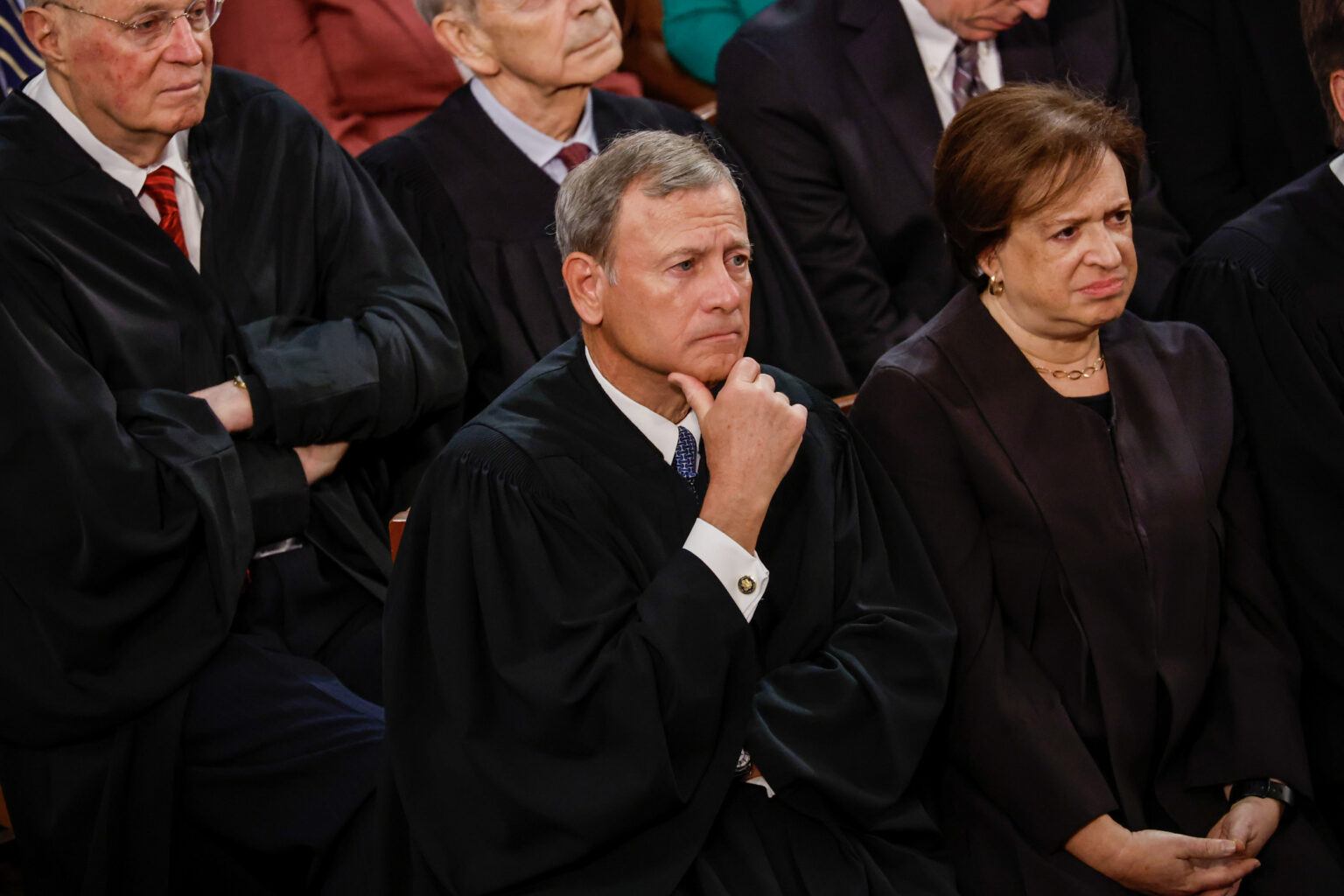Supreme Court Chief Justice John Roberts on Tuesday addressed four areas of “illegitimate activity” that he said threaten the independence of judges: violence, intimidation, disinformation and threats to defy lawfully entered judgments.
The conservative justice expressed his concerns in the Supreme Court’s annual report.
Why It Matters
The report was released following a tumultuous year in which the nation’s courts were unusually entangled in a tightly contested presidential race. During this time, then-Republican presidential candidate Donald Trump, who faced a host of criminal charges that he denied, repeatedly attacked the integrity of the judicial system.
Newsweek reached out via email to the Supreme Court’s Public Information Office and President-elect Donald Trump’s transition team on Tuesday evening for additional comments.
What to Know
The Supreme Court, which has a 6-3 conservative majority, has come under heightened scrutiny since its 2022 decision to gut the constitutional right to an abortion, which was established in Roe v. Wade.
Conservative justices faced significant backlash from abortion rights advocates and protests near their homes when the draft 2022 opinion in Dobbs v. Jackson Women’s Health Organization was leaked.
In June 2022, Nicholas John Roske, a California resident, was arrested near Justice Brett Kavanaugh’s home in Maryland. At the time of his arrest, Roske was found to be in possession of a firearm, a knife and zip ties. An FBI affidavit, obtained by the Associated Press, said Roske told authorities that he was angered at Kavanaugh over the leaked opinion.
In his 15-page report, Roberts expressed concern over the rising threats of violence against judges nationwide, calling such actions “wholly unacceptable” and adding that they could “undermine our Republic.”
He also highlighted the threat of disinformation about court rulings to judicial independence, noting that social media can amplify distortions and be exploited by “hostile foreign state actors” to deepen divisions.
The chief justice went on to decry elected officials across the political spectrum who have “raised the specter of open disregard for federal court rulings.”
Roberts didn’t mention President-elect Trump in his report, but he emphasized that even when court decisions are unpopular or represent a setback for a presidential administration, other branches of government must still enforce them to uphold the rule of law.
He referenced the landmark 1954 Brown v. Board of Education ruling, which desegregated schools and required federal enforcement against resistance from southern governors.
What People Are Saying
Roberts wrote in the end of year report: “Attempts to intimidate judges for their rulings in cases are inappropriate and should be vigorously opposed.” He added that while public officials have the right to criticize rulings, they should also be aware that their statements can “prompt dangerous reactions by others.”
“Of course, the courts are no more infallible than any other branch,” Roberts wrote. “In hindsight, some judicial decisions were wrong, sometimes egregiously wrong. And it was right of critics to say so. In a democracy—especially in one like ours, with robust First Amendment protections—criticism comes with the territory. It can be healthy.”
Journalist Chris Geidner, who operates the widely-read legal blog, Law Dork, wrote on X, formerly Twitter: “Conflating violence against judges with broad criticism the court faces for its extremism, Chief Justice John Roberts ultimately sent a chilling end-of-year report today.”
What’s Next
From puberty blockers to TikTok, online porn and ghost guns, major Supreme Court decisions are expected in 2025 that could have a massive influence on American culture.
Read the full article here


